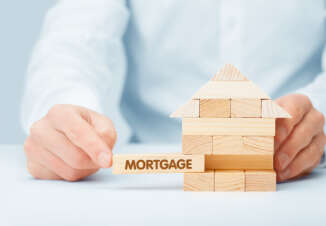The content on this page is accurate as of the posting date; however, some of the offers mentioned may have expired.

When an individual does not have a credit history or has a bad credit history, then it becomes virtually impossible to avail any loan either from banks or a mortgage loan etc... Even if there are loan offers, the terms and conditions have more disadvantages than advantages.
The interest rates that are charged on these kinds of home loans are at least 5 points higher than the average home loan. This is due to the fact that the lender is under a higher risk when the individual has a no or bad credit history.
Another point to consider is that with this type of home loan, the interest rates are variable and not fixed. This way, the interest is automatically reset every time there is a change in the financial market. When there are periods where the interest rates are lowered, the borrower might stand to gain. However, when the interest rates go higher, then the borrower is burdened with the hike in interest rates. Although there are caps on the periodic increase on interest rates during a 12-month period, it still does not help, as there can be changes in interest rates as many as six times a year.
Due to the fluctuating interest and high interest rates, a person with no credit history will usually end up with very high monthly payments. It becomes more difficult for people who are already struggling to pay off their mortgages. As such, a person with no credit history to take a home loan in itself would be quite a burden, add to that the high monthly payments and the fluctuating interest rates.
The down payments for a no credit history mortgage are the biggest issue; this is because lenders want to take a larger down payment. When the average down payment in today's market is between ten to twenty percent (of the price of the purchase) a person with no credit history will have to payout at least 25% to around 40% as down payment, in order to mitigate the risks for the lender. This is an additional security for the lender in case the borrower defaults on the loan. In case the borrower wishes to foreclose the loan, then the lender has the down payment. These home loans are getting more difficult to avail, and are definitely more disadvantageous than regular home loans.





